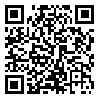Sat, Feb 21, 2026
| فارسی
Volume 27, Issue 3 (Autumn 2025)
Advances in Cognitive Sciences 2025, 27(3): 0-0 |
Back to browse issues page
Ethics code: IR.UI.REC.1403.106
Download citation:
BibTeX | RIS | EndNote | Medlars | ProCite | Reference Manager | RefWorks
Send citation to:



BibTeX | RIS | EndNote | Medlars | ProCite | Reference Manager | RefWorks
Send citation to:
Haghighi Poshtiri N, Ghamarani A. Comparison the Effectiveness of Prospective Memory Training and Waldum's Prospective Memory Intervention on the Theory of Mind of High-Functioning Boys with Autism Spectrum Disorder. Advances in Cognitive Sciences 2025; 27 (3)
URL: http://icssjournal.ir/article-1-1804-en.html
URL: http://icssjournal.ir/article-1-1804-en.html
1- Ph.D. Student of Psychology and Education of Children with Special Needs, University of Isfahan, Isfahan, Iran
2- Associate Professor, Department of Psychology and Education of Children with Special Needs, University of Isfahan, Isfahan, Iran
2- Associate Professor, Department of Psychology and Education of Children with Special Needs, University of Isfahan, Isfahan, Iran
Abstract: (670 Views)
Introduction: Autism spectrum disorder is a neurodevelopmental disorder characterized by deficits in social interactions, communication, repetitive behavioral patterns, and restricted interests.
Methods: The present study was a quasi-experimental study with a pretest, posttest, and 1-month follow-up design with a control group. The statistical population included all high-functioning boy aged 6 to 12 years with autism spectrum disorder in Rasht in 2023, of which 45 children were selected through purposive sampling and randomly assigned to 3 groups (two experimental groups, one control group) (15 people in each group). The first group underwent a researcher-made prospective memory intervention in 15 sessions, the second group underwent a prospective memory intervention program Waldum et al. (2014) in 8 sessions, and the control group did not receive any intervention. The theory of mind computer task Shamay-Tsoory & Aharon-Peretz (2007) was used to collect data. Data analysis was performed using repeated measures analysis of variance using SPSS-24 software.
Results: The results showed that both interventions were effective in improving the theory of mind in children with high-functioning autism spectrum disorder (P<0.05), but the researcher-made prospective memory enhancement intervention was more effective than the Waldum's et al. intervention program (P<0.05).
Conclusion: Based on the findings, both methods can be used to improve the theory of mind in children with high-functioning autism spectrum disorder, but for greater effectiveness, it is better to use the researcher-made prospective memory enhancement.
Methods: The present study was a quasi-experimental study with a pretest, posttest, and 1-month follow-up design with a control group. The statistical population included all high-functioning boy aged 6 to 12 years with autism spectrum disorder in Rasht in 2023, of which 45 children were selected through purposive sampling and randomly assigned to 3 groups (two experimental groups, one control group) (15 people in each group). The first group underwent a researcher-made prospective memory intervention in 15 sessions, the second group underwent a prospective memory intervention program Waldum et al. (2014) in 8 sessions, and the control group did not receive any intervention. The theory of mind computer task Shamay-Tsoory & Aharon-Peretz (2007) was used to collect data. Data analysis was performed using repeated measures analysis of variance using SPSS-24 software.
Results: The results showed that both interventions were effective in improving the theory of mind in children with high-functioning autism spectrum disorder (P<0.05), but the researcher-made prospective memory enhancement intervention was more effective than the Waldum's et al. intervention program (P<0.05).
Conclusion: Based on the findings, both methods can be used to improve the theory of mind in children with high-functioning autism spectrum disorder, but for greater effectiveness, it is better to use the researcher-made prospective memory enhancement.
Type of Study: Research |
Received: 2025/06/17 | Accepted: 2025/11/4 | Published: 2025/11/25
Received: 2025/06/17 | Accepted: 2025/11/4 | Published: 2025/11/25
Send email to the article author
| Rights and permissions | |
 |
This work is licensed under a Creative Commons Attribution-NonCommercial 4.0 International License. |



